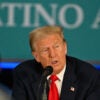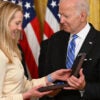
Have Russia’s oil and gas replaced Cossack squadrons and tank divisions as the means to intimidate Europe? Will pipeline routes create new dependencies in the 21st century which may force the NATO alliance come apart at the seams?
Nord Stream is a gas pipeline between Russia and Germany, with spurs to Germany’s neighbors. It will bypass Ukraine, Belarus, the Baltic states and Poland – the traditional transit countries. Leaders from the Central and Eastern European (CEE) worry that this pipeline will allow Russia to cut off the gas to the “problem” countries, while keeping it flowing to its more affluent customers in Western Europe. This worry is particularly poignant given that Ukraine is set for presidential elections in January — and Russia has been slowly stepping up the pressure. Eastern and Central Europe has a lot of reasons to worry.
These fears are founded on historical experiences of Russian, Prussian and Austro-Hungarian conspiracies to carve up Poland; Nazi and Soviet invasions of Czechoslovakia (1938 and 1968 respectively); and the brutal suppression of the Hungarian revolution in 1956.
The recent television interview by President Dmitry Medvedev, where he spoke of Russian zone of “privileged interests” did not help. Eastern Europeans believe that the Kremlin uses its neighbors’ energy dependency as a foreign policy instrument to pressure states to adopt policies which comply with Russian national interests.
These concerns are growing by the prospect as the Nord Stream pipeline, which will snake along the Baltic Sea bottom, becoming a reality. Central and Eastern European (CEE) states believe will make them more vulnerable to Russia’s influence and leverage and decrease security of their energy supply.
To many in the CEE, therefore, Nord Stream is about much more than energy. As the Germans and other Western Europeans become more dependent on Russian gas, foreign policies or “national interests” grow more aligned with Russia. Significantly, Radek Sikorski, Polish foreign minister, once compared Nord Stream to the 1939 Molotov-Ribbentrop Pact between Russia and Germany, a treaty which contained a secret protocol which carved Poland into spheres of German and Soviet influence.
More recently, influential CEE politicians and intellectuals have voiced concerns about America’s commitment to the region in the open letter to President Obama, saying that Russia continues to use energy blackmail and other means to challenge their state sovereignty.
Unfortunately, Ukraine, the Baltic, Central and Western European countries have neglected measures to increase diversity of supply and internal energy efficiency, which could have reduced their vulnerabilities. Europe must step up to the plate and get its energy house in order based on free market principles.
Europe will depend on the Russian energy only if it stands disunited and allows Moscow to call the shots. The price of freedom is vigilance, always, everywhere — even in Europe.


























